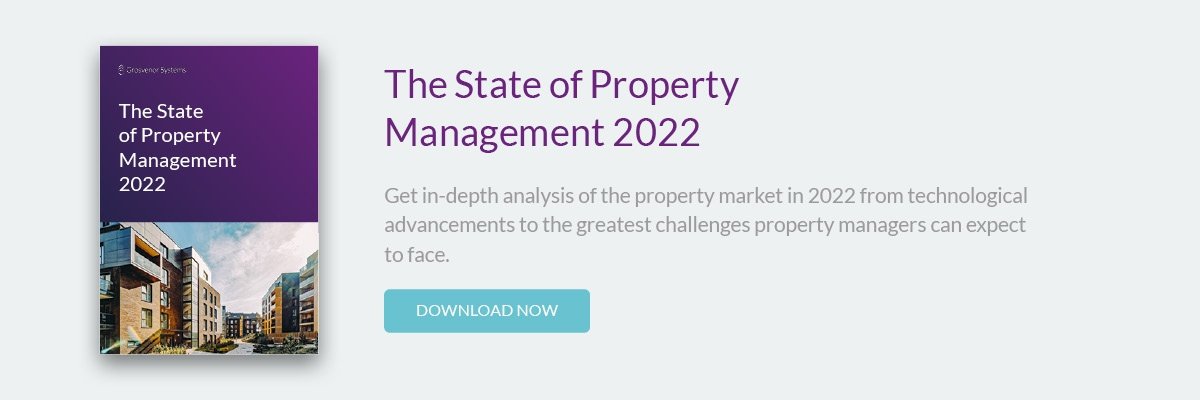10+ Benefits of Utilising a Property Management System
Property management systems and software are a game-changer for high growth companies. But why? Interfaces like our platform, Propman, don't just look good. Behind their pretty facade, property management software also has many useful functions designed to aid even the industry's most ambitious property management firms.

Read on to find out more.
1. Clarity in Communication
As companies grow and become more geographically widespread, it’s important to maintain quality communication.
Choosing to streamline channels of communication by investing in property management software creates a single source of truth to minimise confusion and conflict while decreasing the number of queries and time spent chasing information. This is a quick fix for teams struggling to sing from the same hymn sheet.
However, formal guidance on communication, regular meetings and training sessions may also help improve this all-important aspect of teamwork.
2. Greater Visibility
With an accurate dataset at your fingertips, companies can benefit from greater visibility over their operations.
Whether it's the novelty of understanding a project’s status at a glance or the ability to track KPIs over a certain period, property management systems improve transparency across the business while keeping data encrypted and secure.
This becomes even more important as a company experiences growth, has more avenues for investment and more revenue sources to keep an eye on. Analysis and reporting play a big role in allowing companies to reach the top and maintain their position at the peak of the industry.
3. Real-Time Data
Not only is your dataset accurate with property management software, but it’s instantaneous too.
Real-time data is advantageous for functions like accounting, where payments need to be tracked by date, as well as for customer-facing teams that need to check and relay information in an instant.
The ability to quickly compile and cross-check data is helpful for all companies, despite their size or ambition. Yet, this benefit is essential for high-growth companies as more transactions, conversations and interactions take place.
4. More Accurate Forecasting
With a more accurate dataset comes more accurate forecasting. This is powerful, especially in high-growth companies, as expansion plans need to be considered and based on mathematical projections.
With accurate forecasting, you can take calculated risks to reach the next level of growth.
Again, this ties into visibility and the ability to create custom, tailored reports and schedule them to land in a given inbox on a given date. Getting granular with reporting is something every leader of a high-growth enterprise will be familiar with. Suddenly, every dataset tells a story and helps support teams as they move from one stepping stone to the next.
5. Opportunities for Automation
Teams in high growth companies are busy and always striving toward tomorrow’s objectives. Automation can enable these teams to put more time into achieving their goals, focusing on top-level strategy and tasks that will “move the needle”.
Even in an all-in-one software environment, administrative actions can be a huge time sink. According to research, performing menial duties can absorb as much as a third of our time, making a case for automation all that much stronger.
Yet, automation is often misunderstood. Automation in property management isn’t about streamlining staff or transferring power to computers. Rather, it’s finding the right opportunities for automation, whether that be automating reminders, repetitive tasks or communications to free up time for more engaging duties that can have real business impact.
6. Scalable Processes & Software
Non-modular software is often crucial for high-growth companies, making this feature a must-have on their checklist when shopping for a provider.
The concept of non-modular means the infrastructure of software isn’t fixed, so you can customise and expand your abilities as you go. This makes the processes you implement relevant when you decide to scale your operations and new needs come into play.
If team adaptability and agility matter most when going after your ambitions, then surely the characteristics of your software should follow suit.
7. Allows for Remote Working
In most industries, the top players embrace new ways of working, investing in digital transformation and empowering employees to work from home and in the office. It’s no different in the property management industry.
Remote work is linked to an increase in business profits. Factors such as reduced operating costs, access to a greater talent pool and increases in employee engagement all help remote companies to take a more aggressive and sustainable approach to growth.
Property management systems are the perfect tool to manage the transition, arming employees with everything they need on any device.
8. Brings Teams Together
If you think technology will have a cooling effect on your team, you’re wrong.
Effective implementation of property management systems can have the opposite result, increasing understanding, aiding communication and generally making it easier for people to work closer together. This becomes even more important to keep culture alive and information flowing freely between teams as teams grow.
This said, it’s better to invest in fewer applications, prioritising those that can give you a package of benefits to simplify the adoption of IT, as well as minimise compliance risks. All-in-one property management software fits this bill, providing a way for traditionally siloed teams to come together under one roof.
9. Enhanced Tenant Communication
It isn’t just internal relationships that will blossom thanks to the adoption of property management software. Your agreements with stakeholders and tenants can also be made much easier by removing friction from the communications process.
With more tenants and clients to manage in a high-growth environment, it’s crucial you nail the route to satisfaction and embrace easier ways to talk to tenants.
Elements of property management software such as an online portal can revolutionise the tenant and client experience to become more about what an individual finds helpful and which forms of communication and payment are most convenient for their lifestyle.
10. Encourages Reporting & Reflection
We’ve already stressed the importance of reporting more than once throughout this blog, but it really is integral within the first stages of growth.
Property management systems facilitate reporting and reflection, but they also actively encourage it by keeping the function front and centre, as well as housing all data in one safe space.
Reporting and reflection are arguably some of the most important activities for every specialist to keep up to date with, especially if they plan to do more than maintain their current position. Watch our webinar on the top reports property managers tend to run and why.
11. Provides a Platform to Track KPIs
All this data creates the ideal environment to set team KPIs and track them to the nth degree. In doing so, your team will benefit from carrying out a more detailed SWOT analysis and creating benchmarks for themselves to achieve.
For example, the finance side of your property management team might decide arrears chasing is a weakness to work on in the next six months. By being this specific, your operation can quickly level up and use its resources wisely to climb its highest hurdles. (We’d probably suggest bulk producing communications in this instance, but that’s just us).
Running a High Growth Company? Make Sure Your Team Is Aware of This Year’s Market Trends
Property management software no doubt changes the game for high-growth companies. But it doesn’t eliminate the need to stay up to date with what’s going on outside of your organisation.
Keeping your finger on the pulse of such a fast-paced industry can be challenging, but we try to make it a little easier with our annual state of property management report each year. Download the latest version below and get one step closer to your goals.
.png?width=1920&height=941&name=GS%20white%20clear%20(Large).png)


